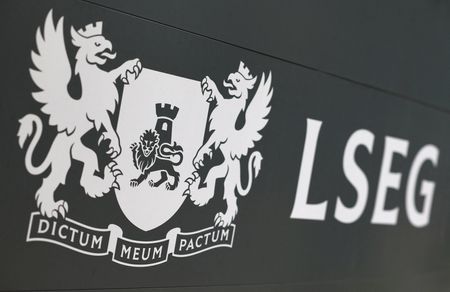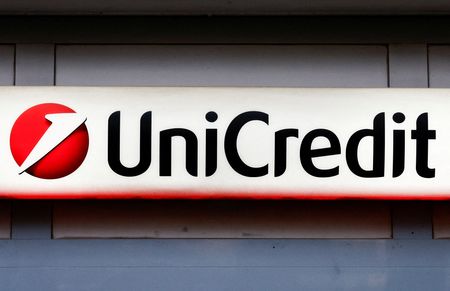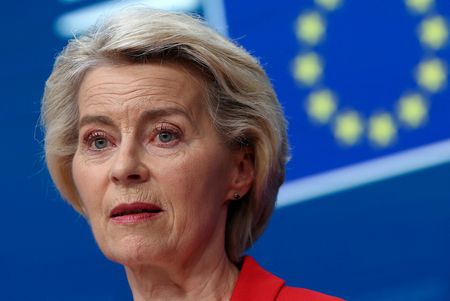By Sruthi Shankar
(Reuters) -The UK’s FTSE 100 slipped on Thursday after the Bank of England (BoE) cut interest rates as expected but projected higher inflation and economic growth following the new government’s first budget.
The FTSE 100 closed down 0.3%, with the export-oriented index weighed down by a 0.8% rise in the pound after the rate decision.
The Monetary Policy Committee voted 8-1 to cut rates to 4.75% from 5%, in-line with investors’ expectations.
The central bank predicted that finance minister Rachel Reeves’ budget last week – which includes significant increases in tax, spending, and borrowing – would likely add just under half a percentage point to the inflation rate at its peak in over two years, causing inflation to take a year longer to return sustainably to its 2% target.
Additionally, the BoE forecast that the budget would boost Britain’s economy by about 0.75% next year.
“The Chancellor’s decision to loosen fiscal policy is expected to provide a boost to demand in the medium term, though the MPC remains wary,” said Jeremy Batstone-Carr, European strategist at Raymond James Investment Services.
“A cautious approach going forward also nods in response to the results of the U.S.
presidential election this week, the impact of which on future trade policy and the global economy is yet to be established.”
UK stock markets fluctuated on Wednesday following Republican Donald Trump’s U.S.
presidential election victory, with investors concerned about potential tariffs under a Trump presidency impacting the European economy.
Attention now turns to the Federal Reserve’s policy decision later in the day, with markets largely anticipating a 25 basis point rate cut.
The FTSE 250 midcap index rose 0.9%, helped by a 13% jump in electronics products distributor RS Group following its first-half results.
BT fell 3.6% after Britain’s biggest broadband and mobile company reduced its full-year revenue forecast from broadly flat to down 1-2%.
Rolls-Royce dropped about 4% after it stuck to guidance for annual profit growth of at least 30% this year.
John Wood Group plummeted 60% following an 8% decline in its third-quarter order book.
(Reporting by Sruthi Shankar and Shashwat Chauhan in Bengaluru; Editing by Tasim Zahid, Alexandra Hudson)












